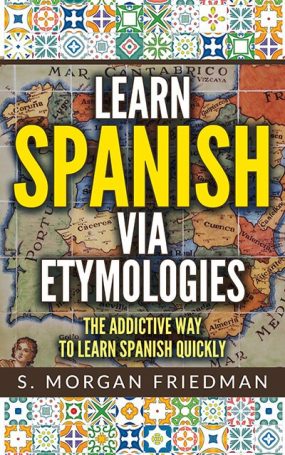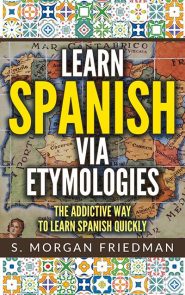The Spanish involucrar (“to get involved with”) comes from the Celtic voloper (“to wrap up.”) Isn’t getting “involved” with something just getting yourself wrapped up in it?
From that same Celtic root, we also get the English… envelope. An
We can see the i-n-v-l of involucrar maps to the e-n-v-l of envelope.

